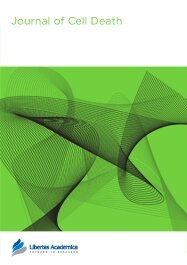

Publication Date: 02 Dec 2009
Type: Original Research
Journal: Journal of Cell Death
Citation: Journal of Cell Death 2009:2 45-51

The study of death receptor family induced apoptosis has gained momentum in recent years with the knowledge that therapeutic antibodies targeting DR4 and DR5 (death receptor’s 4 and 5) have proved efficacious in multiple clinical trials. The therapeutic rationale is based on targeting and amplifying a tumour tissues normal cell death programme (apoptosis). While advances in the targeting of DR4 and DR5 have been successful the search for an agonistic antibody to another family member, the Fas receptor, has proven more elusive. This is partly due to the differing in vitro and in vivo characteristics of individual antibodies. In order to induce Fas targeted cell death an antibody must be capable of binding to and trimerising the receptor. It has been shown that antibodies capable of performing this function in vivo, with the assistance of tumour associated cells, do not always induce apoptosis in vitro. As a result the use of current methodologies to detect functional antibodies in vitro may have dismissed potential therapeutic candidates (‘false negative’). Here we report a novel high throughput screening technique which artificially cross-links antibodies bound to the Fas receptor. By combining this process with Annexin-V and Prodidium Iodide (PI) staining we can select for antibodies which have the potential to induce apoptosis in vivo.
PDF (823.67 KB PDF FORMAT)
RIS citation (ENDNOTE, REFERENCE MANAGER, PROCITE, REFWORKS)
BibTex citation (BIBDESK, LATEX)

It was my great pleasure to serve as a peer reviewer for the Journal of Cell Death. The review process is fast and efficient. The online access was easy and user-friendly. The editorial staff are friendly and helpful. It was a great experience working with Libertas Academica and I look forward to working with them further.
Facebook Google+ Twitter
Pinterest Tumblr YouTube